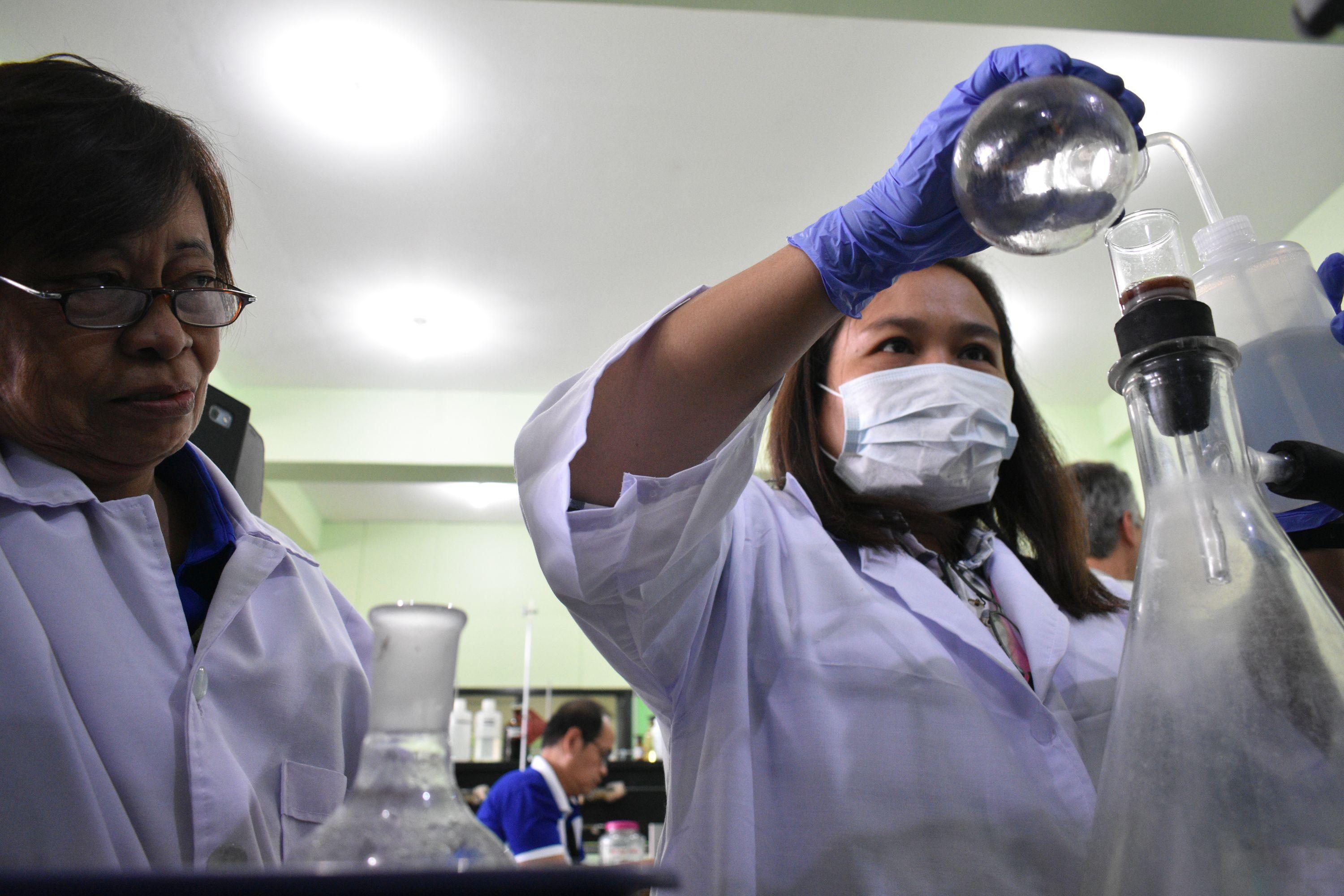PINOY Tannin

The Pinoy Tannin project (from Pinoy = Philippine in local slang) aims to develop the needed scientific, technological, social and economic bases for the set-up of a sustainable and environment-friendly tannin extraction in the Philippines, and to promote them among local communities, industrial stakeholders and policy makers.
About the project
Background
In the Philippines, about 25 million people live in the uplands, mostly depending from the forest for their livelihood and customary lifestyles. Their incomes from conventional timber and crops trading are however limited. The valorisation of disregarded biomasses like bark, twigs, roots, shells and fruit husks as sources of condensed tannins (CT) is an attractive option for the improvement of the community livelihoods.
CT are polyphenolic compounds that can be hot-water extracted from many plant tissues. They have been successfully used in the formulation of formaldehyde-free adhesive for wood-based products. In the Philippines, CT imported from South Africa are already employed as natural substitutes in plywood adhesives. The previous r4d SNF/DEZA project “Cocoboard” showed the efficacy of CT as binders for fibreboards made of coconut husk. There is still an interest in the country in CT extracted from local sources. Howver, only few efforts have been documented for the development of a CT extraction value chain in Southeast Asia, although suitable biomasses have been identified and the extracts efficiently used to formulate wood adhesives in laboratory trials.
To avail the creation of a CT value-chain in the Philippines that will generate long-term benefits to the rural communities a holistic approach is need. The sustainable and feasible exploitation of the CT sources, the development of a cost-efficient and eco-friendly extraction process to be implemented in the community-managed forestlands, and the identification of a effectual entry-market strategy have to be tackled.
Objectives
The Pinoy Tannin project (from Pinoy = Philippine in the local slang) intends to develop the scientific, technological and socio-economic knowledge needed for the successful implementation of an innovative and sustainable tannin extraction technology in local communities in the Philippines, providing them with an additional source of income.
To this avail, the project intends to:
- consider the tannin extraction from biomasses as a multidimensional process that includes all the value chain elements, from the management of natural resources, to the extraction technology and the final usage of tannins in the local industry
- actively involve local communities in the project through the establishment of a model extraction facility and integrated pilot plantations on community-managed forestland, promoting a ‘bottom-up’ approach to sustainable forest governance
- design a profitable extraction process with focus on its easy implementation among local communities and the reduction of the environmental impact through the use of renewable energy sources
- initiate a dialogue with local policy makers and industrial stakeholders to translate the research results into effective policies for the scaling up and a going-to-market approaches
Relevance
The proposed development project is a low-tech approach for the sustainable exploitation of unused or underused agroforestry resources. The project is a promising approach for reconciling economic development with the sustainable exploitation of natural resources and decoupling economic growth and destruction of the environment.
The foreseen project outcomes mainly impact on three goals of the UN 2030 Agenda for Sustainable Development:
- Goal 12.2: sustainable management and efficient use of natural resources
- Goal 15.2: promote the sustainable management of all type of forest and substantially increase afforestation and reforestation
- Goal 8.3: promote development-oriented policies that encourage the formalisation of micro-, small- and medium-sized enterprises
Highlights and most important results
- A training school with the title “Extraction and Characterization of Phenolic Compounds from Plant Tissues” was held between 8th and 10th of August 2018 at the Forest Product Research and Development Institute in Los Baños, Laguna, Philippines
- The identification of the most suitable tannin sources in the Philippines is on-going through the extraction and extract characterization of about 30 different biomasses from the Philippine agroforestry system. Final results are expected for January 2019.
Geographic scope
- Philippines
Project website and link to P3
- Link to website project
- Link to project on SNSF research database P3
